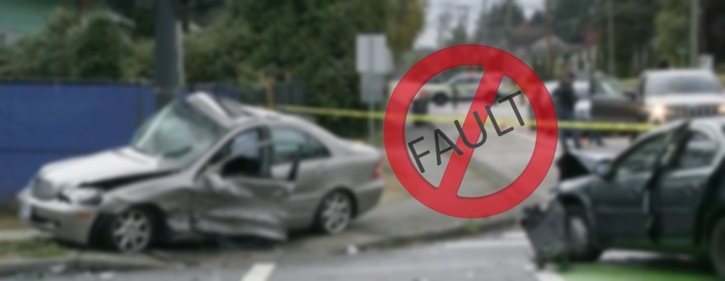To: John Rustad - BC Conservatives
End ICBC No-Fault Insurance in B.C. Protect the People, Not the Insurer

- Reinstate pain and suffering compensation for all from at fault drivers, all passengers, hit-and-run victims, Injuries from Poor Road Conditions or Government Negligence and Mechanical Failures or Product Defects.
- Restore the ability to sue at-fault drivers.
- Provide protections and fair compensation for self-employed and gig workers who face disproportionate hardship.
- Remove ICBC’s restrictions on clinical reporting, including arbitrary word counts and limited templated responses.
- Immediate end to the inappropriate use of the “minor injury” label for nerve, neurological, and chronic pain-related injuries that significantly affect daily life and function. We need individualized, trauma-informed and injury assessments that prioritize pain specialist's clinical judgment and expertise.
- Any person injured in a motor vehicle accident, especially those with cognitive impairments, to have the explicit right to legal advocacy in dealing with ICBC and fully covered by ICBC as part of the claims process.
- Ban insurer interference in Doctors and Specialists recommendations and treatment decisions in patients' care and care provider collaboration.
- Update care and fund specialized condition-specific treatments and evidence-based therapies.
- Abolish Independent Insurance Medical Examiners.
- Right to sue ICBC for mental distress, coercion, and negligence.
Why is this important?
ICBC’s "Enhanced Care" system is failing the very people it claims to protect. Instead of supporting injured British Columbians, it abandons them - leaving pedestrians, care providers, the self-employed, the disabled, and grieving families who’ve lost loved ones without meaningful recourse after devastating crashes.
Under this broken no-fault regime, reckless and negligent drivers face no accountability, and victims are stripped of their fundamental right to sue. Pain, suffering, and long-term losses are dismissed as collateral damage, dehumanizing those who need help the most.
What "abandonment" means under ICBC’s system:
What "abandonment" means under ICBC’s system:
- Being denied fair compensation for lifelong injuries, trauma, or disability.
- Having medical needs questioned or rejected by ICBC’s own hired doctors.
- Being cut off from treatment or wage support, with nowhere to appeal for justice.
- Watching a loved one killed by a careless driver, being told no one is to blame.
- Receiving a fixed, bureaucratic payout that ignores your actual loss and pain.
What was promised as "care" has become a cost-control strategy - a system built to protect ICBC’s financial bottom line by limiting payouts, avoiding lawsuits, and reducing claim costs, all at the expense of real people. This isn’t care, it’s calculated indifference.
These issues have been widely underreported and poorly disclosed to the public. The time for real change is now.
ICBC is a Government-Owned Crown Corporation, With No Independent Oversight.
ICBC's Fairness Officer was appointed by the B.C. government's cabinet, the Premier and their chosen ministers - not by the public. This role lacks the independence and power to hold ICBC meaningfully accountable.
The ICBC Fairness Officer reportedly earns $125 per hour plus applicable taxes, with additional reimbursement for necessary expenses, including staffing costs. Despite this, the Fairness Officer’s recommendations are not binding.
Under the Insurance Corporation Act, the Fairness Officer:
Under the Insurance Corporation Act, the Fairness Officer:
- Cannot reverse decisions on fault or payments
- Has no authority to award compensation
- Cannot hold ICBC accountable for unjust decisions
Meanwhile, ICBC claims adjusters who serve as both the insurer and decision-maker in a claimant’s case typically earn around $65,777 per year, with performance-based bonuses tied to claims cost containment and settlement targets. Prioritizing cost savings over fair treatment of injured people.
ICBC’s system also routinely misclassifies serious long-term and complex injuries including nerve damage, soft tissue trauma, neurological complications, and chronic pain as “minor injuries.”
This harmful misclassification:
- Restricts care access, even for life-altering or long-term conditions
- Minimizes real pain and suffering, especially for invisible or delayed-onset injuries
- Limits support, compensation, and recovery options
- Undermines medical judgment and lived experience
- Forces a one-size-fits-all approach that devalues individual needs
- Leads to worsened outcomes and delayed healing
- Contributes to long-term disability
We need an immediate end to the inappropriate use of the “minor injury” label - particularly for nerve, neurological, and chronic pain-related injuries that significantly affect daily life and function.
Those with complex injury symptoms need Individualized, trauma-informed injury assessments that respect the expertise of pain specialists and treating physicians.
Those with complex injury symptoms need Individualized, trauma-informed injury assessments that respect the expertise of pain specialists and treating physicians.
British Columbians were promised better care but what we got was voided legal protection, limited access to treatment, ICBC in total control, and a silencing of vulnerable voices.
Ensure our public insurer is held accountable for fairness, dignity, and transparency.
Current Premier David Eby and the BC NDP introduced ICBC’s "Enhanced Care" model - a system that has caused real and lasting harm to injured British Columbians and their families.
David Eby and BC's NDP government continue to defend ICBC despite widespread public outcry. Under Eby's leadership, injured people have lost:
- The right to sue, even in cases of catastrophic injury or wrongful death
- Access to fair, trauma-informed care
- Legal protections for pedestrians, cyclists, the disabled, and their loved ones
- Independent oversight, advocacy, and fair treatment
British Columbians deserve a Premier who puts people before profits, patients before corporations, and justice before bureaucracy.
We need leadership that listens.
We need care, not control.
And we need every level of government to ensure that no Canadian is left behind, especially when harmed by another’s negligence.
We need care, not control.
And we need every level of government to ensure that no Canadian is left behind, especially when harmed by another’s negligence.
